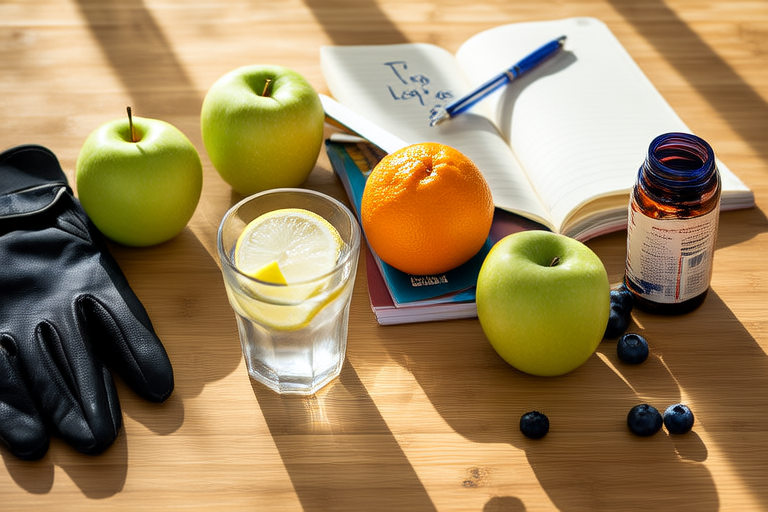Boosting Well-being Through Healthy Living Habits
The pursuit of a fulfilling life is often synonymous with the quest for well-being. In an era where stress, sedentary lifestyles, and poor dietary choices are prevalent, it becomes crucial to focus on enhancing our physical, mental, and emotional health through healthy living habits. This article explores the significance of incorporating regular exercise, proper nutrition, adequate sleep, stress management techniques, hydration, and social connections into our daily routines. By adopting these practices, we can pave the way towards a healthier, happier life.
Regular Exercise: The Foundation of Physical Health
Physical activity is a cornerstone of good health. Engaging in regular exercise not only helps maintain a healthy weight but also reduces the risk of various chronic diseases such as heart disease, diabetes, and certain cancers. It enhances muscle strength, flexibility, and endurance, contributing to better balance and coordination, which are essential for preventing falls and injuries, especially as we age.
- Start Small: If you’re new to exercise, begin with short walks or gentle stretching sessions. Aim for at least 30 minutes of moderate-intensity aerobic activity most days of the week. As your fitness level improves, gradually increase the duration and intensity of your workouts.
- Incorporate Strength Training: Include exercises that work all major muscle groups at least twice a week. Lifting weights, using resistance bands, or performing bodyweight exercises like push-ups and squats are effective ways to build muscle and improve bone density.
- Mix It Up: Vary your routine to keep things interesting and challenge different muscle groups. Consider activities like cycling, swimming, dancing, or playing team sports. This variety can also help prevent boredom and reduce the risk of overuse injuries.
Proper Nutrition: Fueling Your Body for Optimal Performance
Nutrition plays a vital role in maintaining energy levels, supporting immune function, and promoting longevity. A balanced diet rich in fruits, vegetables, whole grains, lean proteins, and healthy fats provides the necessary nutrients for optimal bodily functions. Eating a wide range of foods ensures that you get all the vitamins and minerals needed for good health.
- Plan Your Meals: Prepare nutritious meals in advance to avoid relying on unhealthy convenience foods. Incorporate a variety of colorful fruits and vegetables into your diet to ensure a broad spectrum of essential nutrients. Aim for at least five servings of fruits and vegetables per day.
- Hydration Matters: Drink plenty of water throughout the day to stay hydrated. Water aids digestion, supports kidney function, and helps regulate body temperature. Carry a reusable water bottle with you to remind yourself to drink regularly.
- Limit Processed Foods: Minimize consumption of processed snacks, sugary drinks, and foods high in saturated fats. Instead, opt for whole, unprocessed foods that provide more nutritional value and less empty calories.
Adequate Sleep: Restoring Mind and Body
Sleep is indispensable for recovery, repair, and rejuvenation. During sleep, the body repairs tissues, consolidates memories, and balances hormones. Chronic sleep deprivation can lead to weakened immunity, increased inflammation, and higher risks of obesity, diabetes, and cardiovascular disease. Prioritizing quality sleep is essential for both physical and mental well-being.
- Establish a Routine: Go to bed and wake up at the same time every day, even on weekends. This consistency helps regulate your body’s internal clock, making it easier to fall asleep and wake up naturally.
- Create a Relaxing Environment: Make your bedroom conducive to sleep by keeping it cool, dark, and quiet. Invest in comfortable bedding and consider using blackout curtains or earplugs if necessary.
- Limit Screen Time: Avoid screens at least an hour before bedtime, as the blue light emitted from devices can interfere with melatonin production, making it harder to fall asleep. Instead, engage in relaxing activities such as reading or listening to soothing music.
Stress Management Techniques: Nurturing Mental Health
Chronic stress can take a toll on both mental and physical health. Prolonged exposure to stress hormones can weaken the immune system, disrupt sleep patterns, and contribute to anxiety and depression. Developing effective stress management strategies is crucial for maintaining emotional resilience and overall well-being.
- Mindfulness Meditation: Practice mindfulness meditation to cultivate present-moment awareness and reduce stress. Sit quietly and focus on your breath, observing thoughts and sensations without judgment. Start with just a few minutes each day and gradually increase the duration.
- Deep Breathing Exercises: Engage in deep breathing exercises to activate the relaxation response. Try diaphragmatic breathing, where you inhale slowly through your nose, allowing your abdomen to rise, and exhale slowly through your mouth. This technique can be particularly helpful during stressful situations.
- Connect with Nature: Spend time outdoors in natural settings to alleviate stress and boost mood. Whether it’s a walk in the park, a hike in the mountains, or simply sitting by the beach, connecting with nature can provide a sense of peace and tranquility.
Hydration: Quenching Thirst for Vitality
Water is essential for life, yet many people overlook its importance. Proper hydration supports nearly every bodily function, including circulation, digestion, and temperature regulation. Dehydration can cause fatigue, headaches, and impair cognitive performance, so staying adequately hydrated is crucial for optimal functioning.
- Monitor Your Intake: Keep track of your water consumption throughout the day. A general guideline is to drink eight glasses of water daily, but individual needs may vary based on factors such as activity level and climate. Adjust accordingly.
- Add Flavor Naturally: If plain water doesn’t appeal to you, try infusing it with slices of cucumber, lemon, or berries for added flavor. Herbal teas are another great option for increasing fluid intake while enjoying a warm beverage.
- Stay Hydrated During Exercise: When engaging in physical activity, it’s important to replenish fluids lost through sweat. Drink water before, during, and after exercise to maintain hydration and support performance.
Social Connections: Strengthening Emotional Bonds
Humans are inherently social creatures, and meaningful relationships play a significant role in our emotional well-being. Strong social connections can provide emotional support, reduce feelings of loneliness, and enhance overall happiness. Cultivating and nurturing these relationships can have profound effects on mental health and life satisfaction.
- Stay Connected: Maintain regular contact with friends and family members. Schedule regular phone calls, video chats, or meetups to stay connected. Even brief interactions can make a big difference in maintaining strong bonds.
- Join Groups: Participate in clubs, classes, or community events that align with your interests. These activities offer opportunities to meet like-minded individuals and expand your social circle. Whether it’s a book club, hiking group, or volunteer organization, finding common ground can foster lasting friendships.
- Show Appreciation: Express gratitude and appreciation for those in your life. Simple gestures like sending a thank-you note, offering compliments, or sharing kind words can strengthen relationships and promote positive emotions.
Conclusion: Embracing a Healthier, Happier Life
By integrating regular exercise, proper nutrition, adequate sleep, stress management techniques, hydration, and social connections into our daily lives, we can significantly enhance our overall health and happiness. Each of these habits contributes uniquely to our well-being, whether it’s improving physical fitness, boosting mental clarity, or fostering emotional resilience. While it may seem daunting to adopt all these practices simultaneously, taking small, consistent steps towards healthier living can lead to remarkable improvements over time. Remember, the journey to a healthier, happier life is a marathon, not a sprint. Embrace the process, and enjoy the rewards that come with nurturing your mind, body, and spirit.










